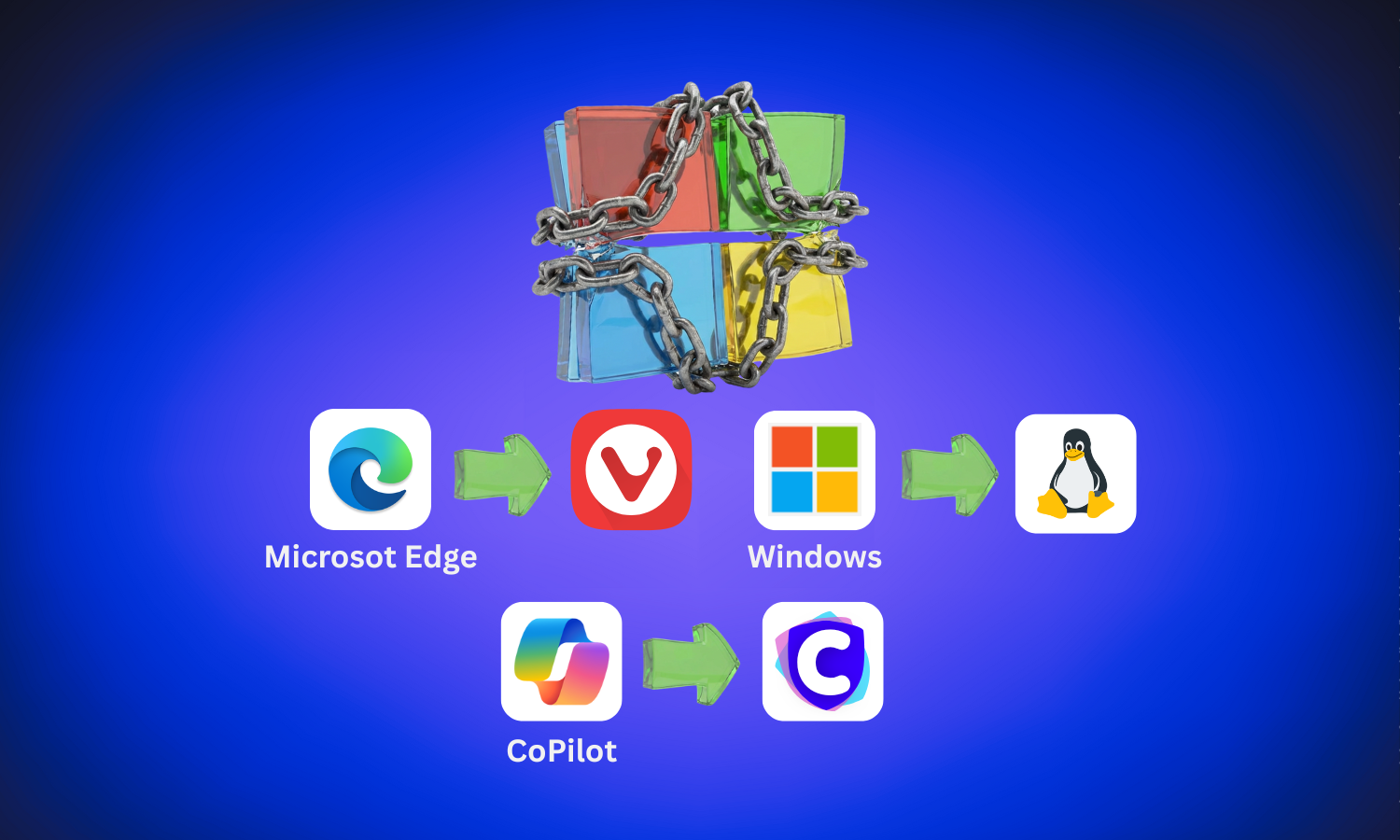Is your business missing out on the massive benefits of AI? Your competitors might already be 40% ahead
How to harness generative AI's power without compromising your most valuable data

The following article dicusses the enterprise AI paradox: why 93% of companies are unknowingly exposing their most valuable assets, how to solve this issue, and how generative AI can boost your business’s productivity without compromising data security or competitive advantage.
Your competitors are using AI to work 40% faster, make better decisions and outperform traditional business methods. Meanwhile, over 60% of employees are already using AI tools daily, whether the company knows it or not. However, over 93% of companies that allow their employees to use AI assistants are unaware of the sensitive data their teams are sharing with ChatGPT and similar platforms. They are also unaware of the risks of letting employees use popular AI assistants like ChatGPT, Microsoft Copilot, Gemini or Perplexity. Employees are already sharing trade secrets, customer data and confidential strategies, often without realising the long-term consequences.
The AI revolution is here. It opens up new possibilities and opportunities for small, dynamic businesses, enabling them to compete with larger companies. However, businesses must make a critical choice: either embrace it safely, or risk falling behind while taking a big risk.
The Productivity Revolution That’s Reshaping Business
Generative AI (in the form of AI assistants) isn’t just a fancy tool—it’s a business transformation engine delivering measurable results across every department. Marketing teams are creating content 40% faster and producing higher-quality results. Legal departments are analysing documents in half the time, and software engineers are writing code 35% more efficiently. But perhaps most importantly of all, AI is turbocharging idea generation and decision-making processes. Teams can now brainstorm solutions more quickly, evaluate more options and develop optimal strategies based on comprehensive contextual analysis that would previously have taken weeks to complete manually. AI assistants also serve as intelligent translators between cross-functional teams, converting complex technical terminology into accessible language with contextual examples. This seamless knowledge transfer eliminates communication barriers and accelerates collaborative decision-making toward shared organizational objectives.
The numbers tell the story clearly: companies implementing enterprise AI are seeing returns on investment within 3-6 months, reducing operational costs, and accelerating their time-to-market for new products and services. Employees report higher job satisfaction when they focus on strategic work rather than repetitive, boring tasks. At the same time, businesses gain the innovation capacity that translates directly into a competitive advantage.
However, there’s a catch: most companies are achieving these gains by unwittingly gambling with their most valuable assets.
The Hidden Crisis Lurking in Every Conversation
Whether your company has officially embraced AI or is still considering its implementation, the reality is that your employees are likely already using it. Every day, well-intentioned team members are having conversations with AI platforms that would shock you. Financial forecasts and budget discussions, pricing strategies that took months to develop, customer lists built over decades, and strategic plans that define your company’s future—all becoming permanent training data for systems your competitors can access.
Recent surveys paint a disturbing picture. Companies are finding that their employees have shared revenue projections with ChatGPT, discussed acquisition targets with other AI assistants, and uploaded confidential client documents to various AI platforms.
The problem’s invisibility is its malicious nature. When your marketing director asks an AI system to help improve a campaign strategy, they’re not thinking about how that conversation reveals information such as your target demographics, budget constraints and competitive positioning. Similarly, when your legal team uses AI to review contracts, they don’t realise that these documents become part of a dataset that can be learnt from by AI systems at other law firms.
What’s Really at Stake: The True Cost of “Free” AI
Data breaches involving AI platforms now cost enterprises an average of $4.45 million per incident, but the hidden costs run deeper. When your strategic plans become training data, you’re funding your competitors’ AI development with your own intelligence. GDPR fines can reach €20 million but the real damage lies in permanently compromised competitive advantages and client trust that took decades to build.
The Competitive Intelligence Nightmare
AI systems excel at making connections between seemingly unrelated information. When your employees share fragments of data across multiple conversations, AI platforms build comprehensive profiles of your business operations, strategies, and vulnerabilities.
Your pricing discussions reveal profit margins. Your hiring conversations expose growth plans. Your customer service training materials show your retention challenges. Individually, these might seem harmless, but AI systems combine them into intelligence goldmines that sophisticated competitors can exploit.
The most successful companies are already using AI to analyze their competitors’ strategies—strategies inadvertently revealed through public AI platform conversations. They’re identifying market opportunities, predicting pricing changes, and anticipating product launches based on the collective intelligence their rivals have unknowingly shared.
Why Privacy-First AI Delivers Superior ROI
The solution isn’t avoiding AI, but rather choosing AI that works for you instead of against you. Privacy-first enterprise AI platforms like CamoCopy Enterprise demonstrate that exceptional productivity gains can be achieved without compromising security.
The financial mathematics are compelling. Although public AI platforms seem free, the hidden costs — data exposure risks, compliance overheads and competitive disadvantages — far exceed the investment in secure alternatives. Businesses opting for a privacy-first AI assistant typically recoup their investment within the first months through productivity gains alone, while eliminating the ongoing liability of data exposure.
The Time to Act Is Now
The window for competitive advantage is closing rapidly. Early adopters of secure enterprise AI are establishing insurmountable advantages while their competitors continue exposing themselves to escalating risks. Every day brings new conversations, more shared intelligence, and greater vulnerability.
Transitioning to privacy-first AI isn’t the complex undertaking many executives fear. For exmplae, CamoCopy Enterprise handles the technical complexity behind the scenes—your teams get the same intuitive AI assistance they’re already using, but with EU-based data processing, and zero training data usage. The typical implementation timeline is just days, not months.
Forward-thinking companies are discovering that secure AI adoption becomes their ultimate competitive differentiator. They can innovate faster while their competitors remain constrained by security concerns or, worse, unknowingly expose their strategies to the market.
Are you ready to use privacy-first generative AI for your business? Try CamoCopy Enterprise for free today for up to five employees. See how your teams can use the full power of AI while keeping your competitive intelligence, client data and strategic plans under your complete control.



